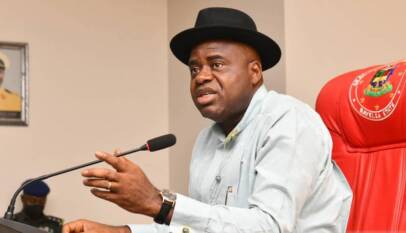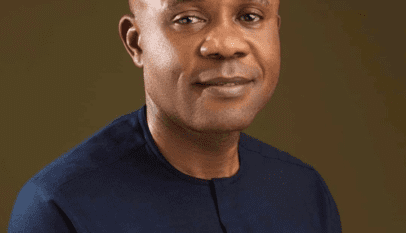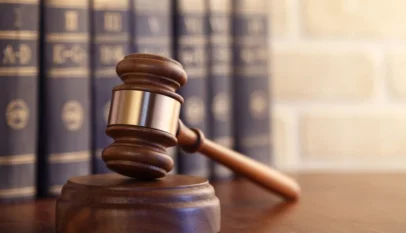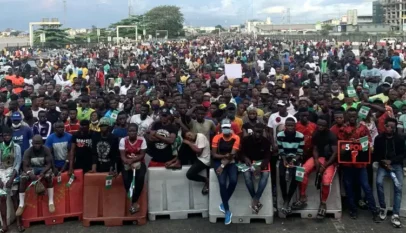By Didimoko A. Didimoko
Eleven governors from the opposition People’s Democratic Party (PDP) have taken President Bola Tinubu to the Supreme Court, challenging his decision to suspend the democratically elected government in Rivers State and impose a state of emergency.
The suit, filed on Tuesday and marked SC/CV/329/2025, seeks judicial interpretation of whether the President has constitutional powers to unilaterally dissolve or suspend elected state institutions and replace them with an unelected administrator.
This legal action was confirmed by Dr. Festus Akande, Director of Information and Public Relations at the Supreme Court.
On March 18, President Tinubu declared a state of emergency in Rivers State, suspending Governor Siminalayi Fubara, Deputy Governor Ngozi Odu, and all members of the State House of Assembly for six months. He then appointed retired Vice Admiral Ibok Ete Ibas as the sole administrator to oversee the state’s governance during the suspension.
The National Assembly backed the President’s actions, lending legislative support to the suspension.
However, the move has triggered a legal backlash from PDP governors, who argue that the President overstepped his constitutional bounds. The plaintiffs—Adamawa, Enugu, Osun, Oyo, Bauchi, Akwa Ibom, Plateau, Delta, Taraba, Zamfara, and Bayelsa states—filed the case through their respective Attorneys General.
In the suit, the governors are asking the Supreme Court to determine:
- Whether, under Sections 1(2), 5(2), 176, 180, 188, and 305 of the 1999 Constitution (as amended), the President has the legal authority to suspend or interfere with the offices of elected Governors and Deputy Governors and install an unelected official as Sole Administrator.
- Whether, under Sections 1(2), 4(6), 11(4) & (5), 90, 105, and 305, the President can lawfully suspend the legislative arm of a state government—the House of Assembly—based solely on an executive proclamation.
- Whether threats or attempts to use a state of emergency as a tool to undermine state governments violate the constitutional principles of federalism and separation of powers.
According to the suit, any such interference is not only unconstitutional but also poses a dangerous precedent that could destabilize Nigeria’s democratic framework.
The respondents named in the case are expected to enter appearance within 14 days of receiving the court summons.
This move ends weeks of speculation about the PDP governors’ response. While reports had earlier indicated that seven governors—including those from Bauchi, Adamawa, Bayelsa, Enugu, Osun, Plateau, and Zamfara—planned to challenge the President’s actions, insiders in both the Supreme Court and the Ministry of Justice revealed they had not yet been formally served until now.





























